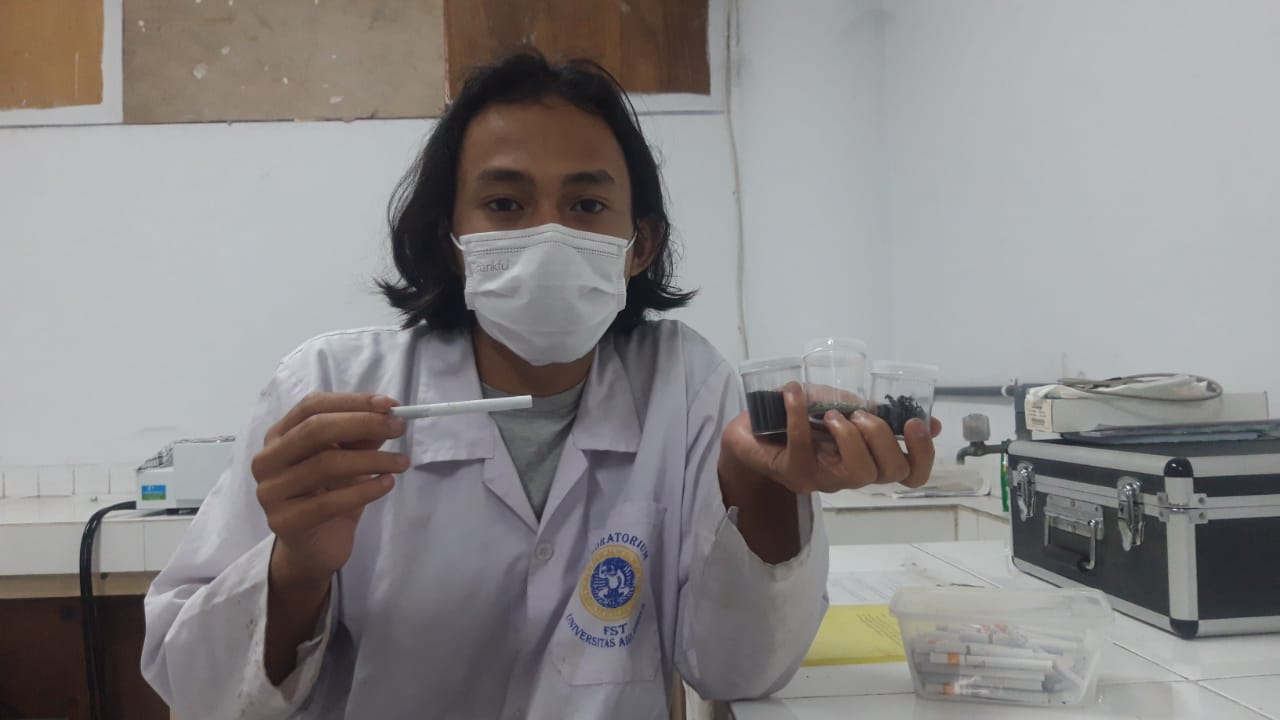UNAIR NEWS – The number of deaths caused by cigarette smoke initiated five UNAIR students to modify cigarette filters. The team is Muhammad Fahroji, Muhamad Faqih, Widyah Puspitasari, and Izza Nur Ilmiyah from the Class of 2018 Faculty of Science and Technology, and Kamailiyah Ulfah from the Class of 2017 Faculty of Veterinary Medicine. This cigarette filter innovation is named “Nano Enzyme-Carbon Filter” to reduce the adverse effects of cigarette smoke.
Basically, the PKM (Student Creativity Program) team that passed the funding selection from the Higher Education Directorate, Ministry of Education, Culture, Research, and Technology realized that many people are not affected by the campaign and impacts of smoking which has caused numerous deaths in Indonesia. “This is one of our efforts as young researchers to reduce the risk of diseases caused by smoking,” said Muhammad Fahroji as the team leader.
Generally, the original filter in cigarettes is made of Cellulose Acetate, which is believed to be able to filter out substances such as Tar and Nicotine. With a different composition, the cigarette filters made by PKM RE (Exact Research) Team Universitas Airlangga are expected to work better.
“Basically, the modifications we made are aimed at maximizing the function of the cigarette filter, so the resulting product is more effective, especially in reducing harmful effects on the body,” he explained.

The team added Graphene Oxide (GO), Activated Carbon (AC), and Cooper Tannic Acid Nanozyme (Cu-Tannic Acid), which have been investigated to have the ability to absorb harmful substances in cigarette smoke, in the modified filter. “We combine these three compounds to specifically filter out harmful compounds in cigarettes such as free radicals, carbonyl compounds, and micro-particles. We offer something new, compared to commercial filters on the market,” he explained.
After conducting a literature review, in-silico testing, ethical testing, and ordering tools, the team is now working on the article and permission to characterize further the compounds being tested. The PKM team, guided by Mochamad Zakki Fahmi, S.Si., M.Si., Ph.D, a Faculty of Science and Technology lecturer, Universitas Airlangga, also initiated this idea to support the National Movement for Lung Cancer Care.
They hoped that this research could be disseminated in the future so that the community can feel its good impact. “Hopefully, this research can be useful for millions of smokers in Indonesia, as the risk of acute diseases due to smoking is reduced,” he concluded. (*)
Author: Stefanny Elly
Editor : Khefti Al Mawalia (YA/AP)





